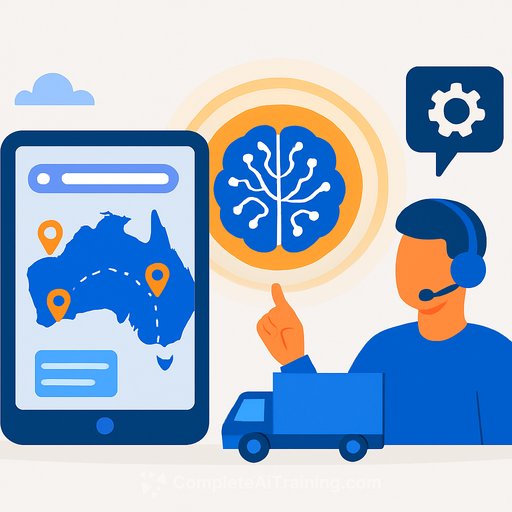Generative AI is reshaping fleet management in Australia
Australia's freight and logistics sector is stepping into a new phase of digital execution with Geotab Ace, a generative AI assistant embedded in MyGeotab. Positioned as the industry's first of its kind, it lets operators ask natural language questions and get instant, actionable answers.
With fuel costs rising, ongoing driver shortages, and tighter sustainability targets, the promise is simple: less time buried in reports, more time making decisions that move the numbers.
What Geotab Ace actually does
Geotab Ace processes billions of connected-vehicle data points daily and converts complex analytics into clear recommendations. It learns from prior interactions and adapts to each fleet's setup.
- Predictive maintenance: surface components at risk before failure and schedule service with minimal downtime.
- EV insights: optimise charging windows, route suitability, and total cost of ownership.
- Safety analytics: pinpoint risky behaviours and locations; prioritise coaching that changes outcomes.
Why managers should care
- Reduce fuel spend via route efficiency, idling control, and driver behaviour insights.
- Increase asset utilisation by matching vehicles to demand and tightening turn times.
- Cut breakdowns and unscheduled maintenance with earlier alerts.
- Improve compliance and safety with data-backed interventions.
- Shorten decision cycles by making data accessible through simple questions.
Example questions your team can ask
- "Which routes had the highest fuel burn per kilometre this week and why?"
- "Show vehicles at risk of maintenance within 1,000 km and recommended actions."
- "Where are the top five harsh-braking hotspots and which drivers need coaching?"
- "What's the EV range variance by temperature for our Sydney metro runs?"
- "Which depots have the most idling time after-hours?"
Privacy, security, and scale
Geotab Ace follows privacy-by-design principles. Telematics data remains within Geotab's environment and isn't shared with external large language models. With over 5 million connected vehicles and more than 100 billion data points processed daily, the platform is built for scale.
For governance-minded teams, align Ace access with role-based permissions, log queries where appropriate, and keep a clear audit trail for compliance. For more on Geotab's security posture, visit the Geotab Security page.
Fast path to value
- Define 3-5 business questions Ace should answer weekly (fuel variance, service risk, safety hotspots).
- Pilot with one region or asset class for four weeks. Set baselines before you start.
- Create simple roles: Operators ask; Managers review; Maintenance and Safety act.
- Automate a weekly Ace briefing: top anomalies, root causes, recommended actions.
- Standardise follow-through: assign owners, deadlines, and verify impact in MyGeotab.
KPIs to track from day one
- Fuel cost per kilometre and idle time per vehicle
- Preventive vs. corrective maintenance ratio
- On-time performance and average dwell time
- Safety event rate per 100 km (harsh events, speeding)
- EV utilisation, charging efficiency, and cost per kWh
What this means for operators
This isn't about another dashboard. It's about faster, clearer answers that support daily decisions across scheduling, maintenance, safety, and sustainability.
As Chris Martin, Senior Manager, Solutions Engineering - APAC at Geotab, puts it: by letting operators ask a question and get an instant, data-backed answer, decision cycles shrink across the supply chain-moving the focus from reporting to results.
Upskill your team for AI-enabled operations
If you're building AI capability across operations, explore practical training for managers and operators: AI courses by job role.
Bottom line: Give your team the ability to ask and act. Start small, measure weekly, and scale what works.
Your membership also unlocks:






